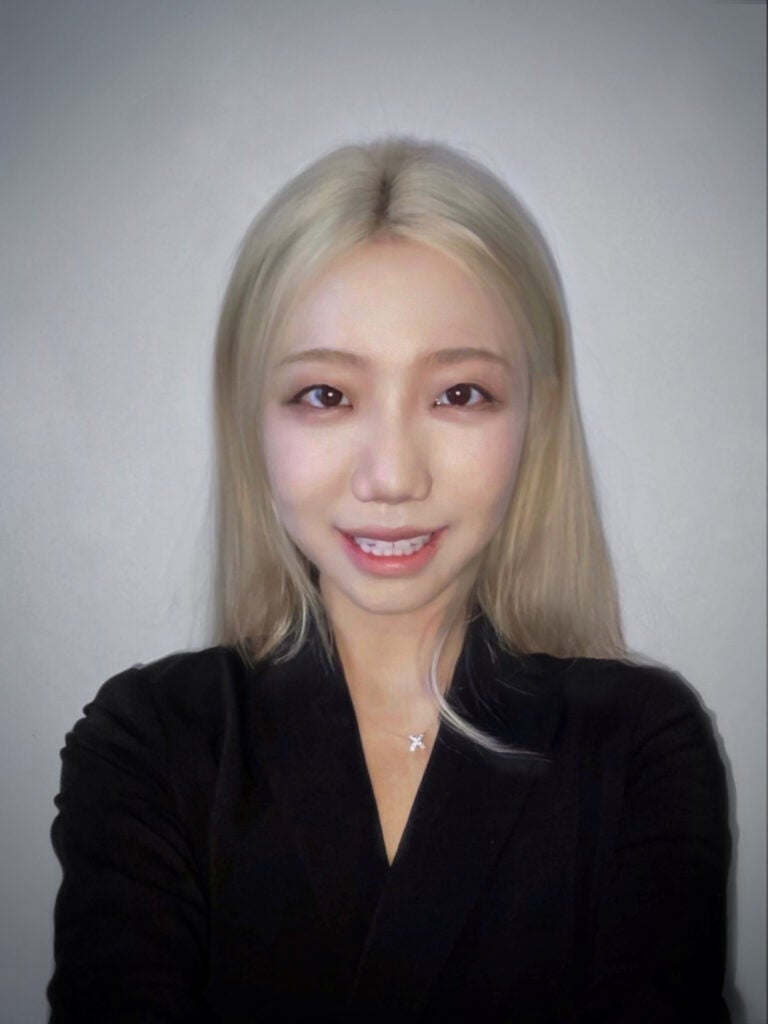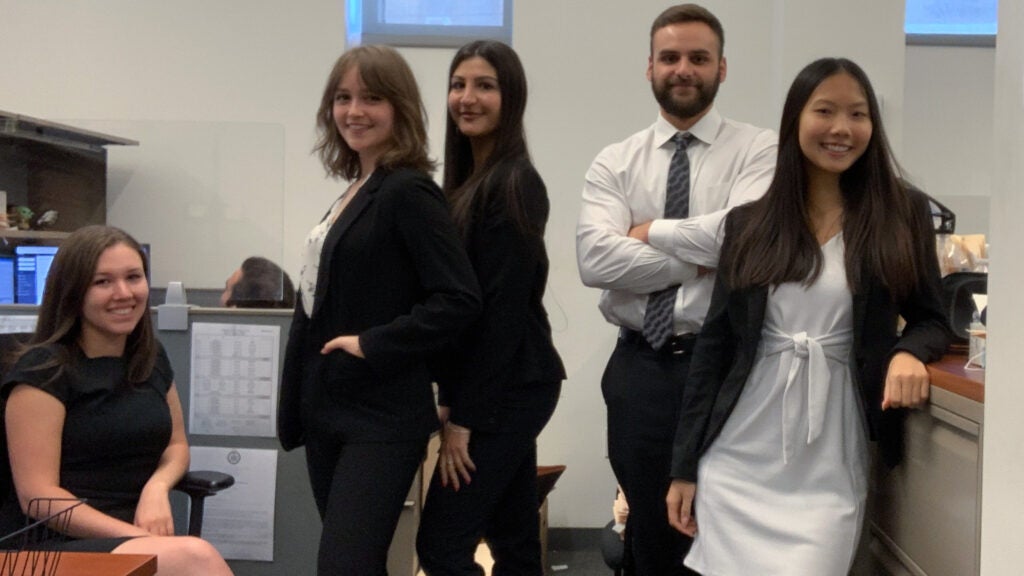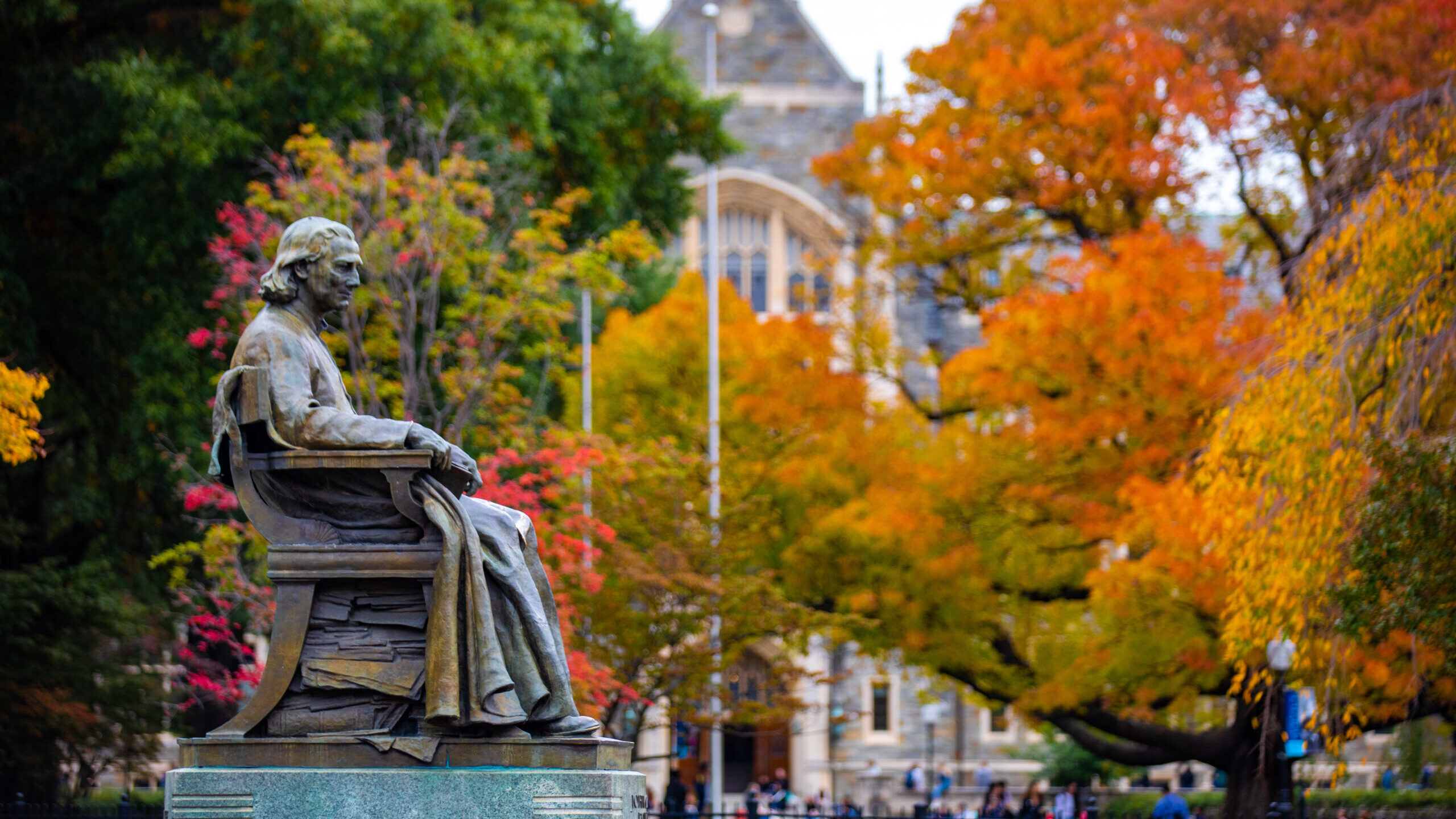Royden B. Davis Fellowship Empowers Students to Explore New Horizons
Every summer, the Royden B. Davis Fellowship empowers undergraduate students in the Georgetown College of Arts & Sciences to explore new horizons. Fellows are awarded between $1,000 and $5,000 to explore “transformative educational experiences,” ranging from original research to international internships and everything in between.
Given in honor of Fr. Davis, the Dean of the College from 1966 to 1989, the fellowship strikes at the center of a liberal arts education – a commitment to curiosity and growth.
“In any situation, one should always leave room for the unexpected and the unseen,” Fr. Davis said in a 1985 commencement address. “In order to do this, we must employ the imagination… One gains through the imagination a freedom of action, and ability to be ready for fresh choices.”
The 2022 cohort of fellows boasted 24 undergraduate scholars, each of which embodies the best of the College.
Winni Zheng (C’23)

Winni Zheng (C’23
The Davis Fellowship enabled Winni Zheng (C’23) to stay in Washington, DC over the summer and continue her work with Rachel Barr, a professor in the Department of Psychology.
“The Davis Fellowship allowed me to not only work in person, but grow closer to Professor Barr over the summer,” says Zheng. “I was able to come into the lab every day, get feedback, ask for input, and focus on research without any outside distractions.”
Barr’s lab, the Early Learning Project (ELP), explores questions of social and cognitive development in childhood. The “Boomers and Zoomers” research that Zheng worked on during the summer examined how grandparents and grandbabies stayed connected via video chat during the pandemic.
“In an era of social distancing, how do parents, grandparents and infants keep in touch with each other?” asks Barr. “We asked parents and grandparents across the country about their use of video chat during the pandemic and obtained recordings of video chats between grandparents, their new grandchildren and the child’s parents.”
The team’s findings showed that frequent, short video visits enabled grandparents and grandchildren to form emotional bonds during the pandemic despite physical separation. For Zheng, a senior majoring in economics and following a pre-health track, the project allowed her to be involved in the research process from inception to publication.
“I first began working on a protocol for coding the video chats – figuring out how to describe the ways children react to their grandparents and vice versa,” Zheng says. “Then, I was able to actually code the recordings for the research team’s analysis.”
Zheng’s hands-on experience comes with skills that can’t be acquired in a classroom. For Barr, it’s important to foster undergraduate research opportunities. More than a dozen undergraduate students participate as ELP team members and are engaged in real-world research.
“Undergraduate research gives students an opportunity to participate in a process that results in entirely new knowledge,” Barr says. “Students not only develop research skills, but learn about teamwork and build science communication skills.”
The chance to conduct research under Barr’s tutelage has informed Zheng’s post-college plans.
“I began this fellowship with the intention of applying to grad school right after graduation,” Zheng says. “Professor Barr connected me with several ELP alumni and I’ve come to realize that I still have a lot to learn about myself and my interests. I am incredibly grateful to Professor Barr for her guidance and advice.”
After working with Zheng for the majority of her undergraduate career, Barr is confident she’ll land on her feet no matter what path she chooses to take.
“Winni is an excellent researcher – intelligent, conscientious and curious,” Barr says. She learns quickly and she always follows through.”
Reina Lau (C’25)

Reina Lau (C’25), far right, with her fellow legal interns.
For Reina Lau (C’25), the Davis Fellowship allowed her the freedom to explore a future career. Over the summer, she landed an internship in the Criminal Court Bureau at the Office of the Richmond County District Attorney.
“Criminal Court is the only unit placed in the Staten Island Supreme Courthouse,” Lau explains. “I was able to attend arraignment court daily and sit in on certain hearings. It was an incredible, eye-opening experience.”
A sophomore majoring in economics and government with a minor in psychology, Lau has long been interested in pursuing a legal career, but the pandemic prevented her from acquiring experience through in-person internships.
“Since I was 15, I have planned on going to law school and becoming a criminal prosecutor. That was the plan,” Lau says. “I had the opportunity to intern with the District Attorney’s Office in high school, but then the pandemic hit. And the only opportunity available was a once-a-week Zoom seminar.”
With in-person internships once again available, Lau secured a position in the Criminal Court Bureau, which is usually reserved for legal interns. This gave Lau the chance to see firsthand the career she’d always wanted.”
“Every day, I got to be in the Staten Island Supreme Courthouse,” Lau says. “I prepared case files, redacted documents and drafted certificates of compliance. I really saw it all.”
That experience led Lau to a big realization – the career in criminal prosecution she’d imagined back in high school didn’t exactly match up with the reality she saw in the courtroom.
“All in all, this internship was an incredible experience because it allowed me to really see
what being a prosecutor entails and opened my eyes to other possibilities in the field of law as an attorney,” Lau says.
That doesn’t mean she’s abandoned the law school plan, however. Lau is still pursuing a pre-law track in her studies, but wants to explore other doors that a J.D. could open.
“Because of the Davis Fellowship, I am not only looking to expand my academic pursuits into different fields, especially with economics and science, but also eager to pursue other experiences or internships, such as politics on the Hill or private firms,” says Lau.
Applications for the 2023 Davis Fellowship open on January 9, 2023 and will be due by March 14, 2023. Students in the College with questions should write to the chair of the Royden B. Davis Fellowship Committee, Dr. Bernie Cook, at cookbj@georgetown.edu.
